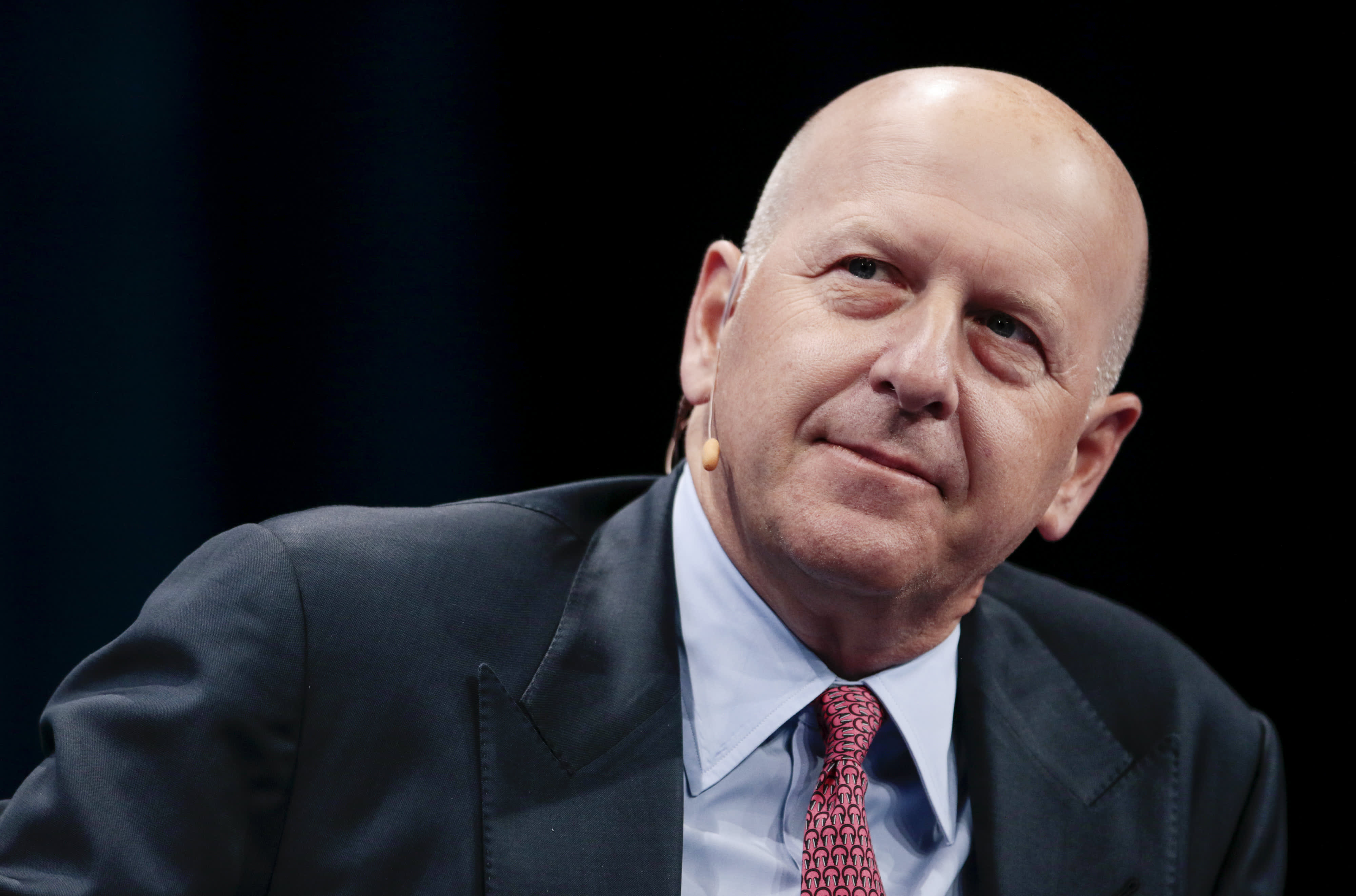David Solomon, the CEO of Goldman Sachs, speaks during the Bloomberg Global Business Forum in New York, September 25, 2019.
Shannon Stapleton | Reuters
Goldman Sachs reported first-quarter earnings before the opening bell Wednesday.
The bank said Wednesday it earned $3.11 a share in the quarter on revenue of $8.74 billion.
Goldman shares are lower by 1.6% in the premarket following the results.
“Our quarterly profitability was inevitably affected by the economic dislocation,” said David Solomon, chairman and CEO, in a release. ” As public policy measures to stem the pandemic take root, I am firmly convinced that our firm will emerge well-positioned to help our clients and communities recover.”
Trading results increased because of the market volatility. Fixed Income, Currency and Commodities (FICC) posted net revenues of $2.97 billion, highest in five years. Equities revenues came in at $2.19 billion, the second best quarter in five years.
Here’s what Wall Street expected:
Earnings: $3.35 a share, 41% lower from a year earlier, according to Refinitiv.
Revenue: $7.92 billion, a 10% decrease from a year earlier.
Trading Revenue: Fixed Income $1.99 billion, equities $1.92 billion.
Investment Banking Revenue: $1.87 billion.
For years, critics of the bank have bemoaned its lack of broad retail banking operations as rivals including JPMorgan Chase and Bank of America outperformed Goldman, fueled by loans funded with cheap customer deposits.
Now, in the first quarter where the industry’s results have been impacted by the coronavirus pandemic, Goldman Sachs may be more insulated from the turmoil facing its bigger peers. Among the six biggest U.S. banks, Goldman derives the biggest share of its revenue from Wall Street activities including trading and mergers advice.
On Tuesday, JPMorgan Chase and Wells Fargo both posted sharp drops in first-quarter profit as the banks set aside a combined $10 billion for a coming deluge of loan defaults. A lone bright spot for the banks has been surging trading and bond issuance operations, driven in part by the historic jump in market volatility last month.
Still, Goldman is exposed to declines in the value of private and public companies held as investments, which could sting the firm.
And analysts will be keen to hear if CEO David Solomon’s performance targets, given at the bank’s first-ever investor day in January, will still be achievable.
This story is developing. Please check back for updates.
